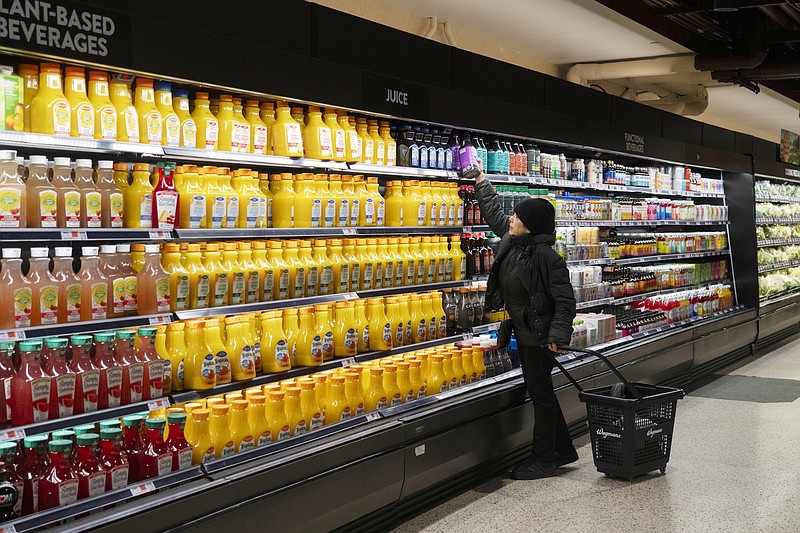By most standard economic measures, President Joe Biden has presided over a strong economy. In terms of growth, job creation, wage gains and employment levels, it's hard to find fault. But, as everyone knows, voters heading to the polls in November aren't feeling the way the data suggests they should.
Why? Inflation and its corollary, the high cost of borrowing money.
Everyday Americans are still suffering from the price spike that hit during the early days of Biden's administration, and no amount of evidence showing that inflation is back down again has changed that fundamental view.
While the Federal Reserve deserves credit for guiding the post-pandemic recovery without putting the country into a recession, America is still feeling what some have dubbed a silent recession, or "vibecession." A Gallup poll in January found that 45% of Americans rate the economy as "poor," and most of the respondents said it's getting worse.
That's not the message from the White House, certainly, or from the Fed. But some economists looking for an explanation have focused on whether inflation is being undercounted, an idea once dismissed as a flimsy right-wing talking point.
A new economic analysis by former Treasury Secretary Lawrence Summers and several others suggests inflation was much worse at its peak than the official numbers showed. The reason is that the method for calculating inflation changed: In 1983, the government took housing finance expenses out of the formula for the consumer price index (CPI). Among other changes since then, it replaced home ownership costs with a less-volatile metric based on rent.
Using the pre-1983 calculation, according to the Summers analysis, CPI was running at a stunning 18% as of November 2022, far higher than the single-digit official rate. The index has failed to keep up with the high cost of borrowing, Summers says, which could explain why people have a bad feeling about the economy.
After all, the average American carries more than $100,000 in debt across mortgages, car loans, student loans and credit cards — and borrowing costs remain high. As it turns out, consumer sentiment has tracked much more closely with the old method for calculating CPI than the modern one that de-emphasizes debt service.
What to do about it? This is where policymakers can get into trouble.
Biden is trying to reframe the debate by criticizing businesses for shrinking the size of their products while also raising prices. His "shrinkflation" gambit is supported with some real-world evidence: Those bags of pretzels don't hold as much as they used to, and there's less toothpaste in the tube.
We've been critical of some consumer products companies for taking advantage of the inflationary environment by hiking prices simply because they could. But in general, blaming businesses for responding to rising prices seems like little more than typical political blame-shifting. Of course businesses had to respond, and Biden ought to acknowledge that inflation is stickier than he anticipated it would be — and not because corporate America is pulling off some stealthy plot.
The Fed could come to Biden's rescue by cutting rates, and Chair Jerome Powell says it's still planning to make at least three cuts this year. But its No. 1 priority should be tamping down inflation, which at 3.2% as of Feb. 29 is still too high.
Voters are smart to recognize the pain they're feeling from inflation and the high interest rates needed to fight it. We urge the Fed to keep doing whatever's necessary to stamp it out, political fallout be damned.
